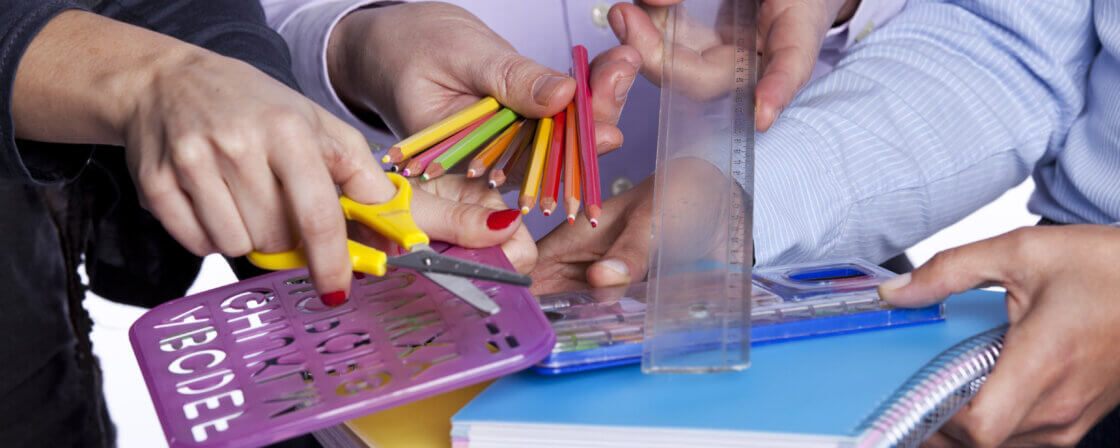What is emergency assistance (MOP)?
Extraordinary Immediate Assistance is a one-off benefit under the heading of material emergency, which is regulated by the Act on Assistance in Material Emergency. The purpose of the benefit is to help people who find themselves in a situation that requires urgent financial assistance – for example, the imminent loss of housing, a sudden lack of funds or the need to pay for basic living needs or emergency expenses.
Typical situations in which the Labour Office pays MOP include:
- Emergency expenses – e.g. school supplies, washing machine, glasses, basic household equipment.
- Housing deposit payment – so-called emergency immediate bail assistance (frequent request).
- Overcoming an emergency – fire, flood, domestic violence, break-up, crisis.
- Lack of means of subsistence – if a person has no money for food or hygiene.
- Ensuring living conditions – emergency expenses or additional payments.
The MOP is different from other benefits, which from October 2025 merges the super benefit (replaces housing benefit, child benefit, housing benefit and living allowance). It is a benefit to which there is no legal entitlement. Entitlement to it arises at the moment when a person is recognised as being in material need by the relevant department of the Labour Office of the Czech Republic. In practice, however, it is normally paid to people who meet the criteria of material need.
Are you solving a similar problem?
Don't know what to do with the MOP?
Do you need help applying for emergency assistance, superannuation or dealing with a refusal or withdrawal of material hardship benefits? Our lawyers can help you with the correct application, documents, arguments and appeals against the decision of the Labour Office.
More information
- When you order, you know what you will get and how much it will cost.
- We handle everything online or in person at one of our 6 offices.
- We handle 8 out of 10 requests within 2 working days.
- We have specialists for every field of law.
How has the 2025 superdose affected the ILO and welfare benefits?
Starting in 2025, the state is gradually introducing the so-called super-benefit, which merges the payment and administration of certain state social assistance benefits and benefits in material need into one integrated system. The aim is to simplify processes, speed up payments and reduce the amount of duplicated documentation.
Impact of the super-benefit on the ILO:
More rigorous assessment of assets and income: the Labour Office now automatically links databases and ascertains assets. This is reflected in the assessment of MOP eligibility, with the office looking more closely at the income of the entire household, disposable savings, recent withdrawals and other benefits.
Faster approval and withdrawal of benefits: integration into the superannuation system means that all information is readily available to the authority. This speeds up the calculation of material hardship, the deadline for payment of material hardship benefits, and the possibility of withdrawing material hardship benefits if the applicant’s income situation no longer meets the conditions.
Joint submission of applications: from 2025 a person can submit applications via the new digital portal Jenda from the MLSA.
This makes the MOP assessment process more accurate – for example, for an application for MOP for a deposit, the total housing costs and household situation must be documented.
Who is eligible for MOP?
A person who meets at least one of the legal conditions under the Act on Assistance in Material Need is entitled to MOP. After the changes in 2025, the assessment is more comprehensive and the authority analyses the entire social and economic situation of the household.
In order to be granted MOP, at least one of the statutory situations defined by law that place the applicant in material need or in a particularly adverse social situation must be met.
Typical grounds for granting the MOP:
Lack of resources
If a person or family does not have the means to meet the basic needs of life (subsistence), the MOP can bridge an acute situation. The Labour Office often deals with cases where the claimant has less than the minimum subsistence level. The basic necessities of life are food, hygiene items, basic clothing, medicines and medical supplies, energy (heat, electricity) and basic housing needs.
A claimant entitled to the MOP has less than the subsistence amount in his/her account or has no cash. The office often grants MOP to cover essential expenses in the range of a few thousand crowns (usually CZK 1,000 to 5,000).
Imminent serious harm to health or social exclusion
MOP may be granted if a person or family is threatened with a situation that could lead to homelessness, inability to live (e.g. unpaid bail), inability to pay basic expenses necessary for the functioning of the household, or a child who lacks school supplies, clothing, etc.
These are cases where, for example, the applicant has to pay a deposit for a new flat or end up on the streets. Or a situation where the family does not have the money to buy school supplies and without them the child cannot start school.
This area represents one of the most common forms of MOP. The MOP for a deposit can range from 12 to 25 thousand, for school supplies from 2000 to 5000 CZK, but there is no fixed limit.
Emergencies
MOP is also granted for events beyond the applicant’s control that have created an acute need for financial assistance. Recognised emergencies include flood, fire, explosion, technical breakdown, separation from an abusive partner, domestic violence, sudden stay in a shelter, evacuation, theft or vandalism, sudden hospitalisation or other interference with the running of the household.
In these cases, the Job Centre usually pays higher amounts to help the claimant to overcome the critical situation (e.g. to buy basic household equipment after a fire).
Transitional crisis situations
The law also allows for the provision of MOP in situations that are not emergencies, but are sudden upheavals in life that are not the claimant’s fault and cannot be resolved quickly. Typical examples are the loss of a job without benefits, the separation of partners leaving one without resources, the death of a family member, the cancellation of a lease and the need to move quickly, or a financial downturn caused by illness or quarantine.
These situations can lead to a lump sum to cope with a critical period.
Reimbursement of essential housing costs
The MOP can also be used to supplement regular housing benefits if the situation cannot be addressed through the housing allowance under the super benefit.
Examples of eligible expenses include: exceptionally high utility arrears (e.g. after billing), essential repairs to a rented flat (emergency cleaning after a breakdown, boiler repairs), exceptional moving costs, exceptional expenses related to moving into a new flat.
The Jobcentre always assesses whether the costs can be covered by another benefit – only if they cannot can it award MOP.
Tip for article
Tip: Housing benefit, housing benefit, child benefit and living allowance – four key benefits that the state has merged into a single “super benefit” from October 2025. This is to be simpler, more targeted and more effective. But in reality, it also brings a number of confusions and unexpected consequences. We look at these in our article.
How does the Authority assess entitlement after 2025?
After 2025, the Jobcentre Plus assesses eligibility for emergency immediate assistance more comprehensively, as the introduction of the super benefit means it has more extensive and immediately available information about the claimant and the household. In practice, therefore, it looks at the claimant’s total assets, cash and savings, and also compares household income against the potential benefit entitlement.
The assessment also includes an evaluation of whether the claimant meets the statutory conditions, which includes a check on the permanent residence and the actual housing costs.
The Office also checks whether the applicant has already been granted any other social benefit or assistance that could cover his/her situation and therefore render the claim for MOP unjustified.
Simply put, emergency assistance is intended for those who find themselves in acute financial hardship that cannot be addressed by any other benefit in the social assistance system.
How to apply for emergency aid
An application for extraordinary immediate assistance can be submitted in several ways, either in person at the Labour Office (material need department), or electronically via the data forms of the MLSA, or by data box, or by regular mail. For a successful submission, it is necessary to provide all the necessary documents. The basic requirement is a completed form – application for extraordinary immediate assistance, to which the applicant is obliged to attach identity documents as well as documents on the income of the entire household so that the authority can assess the current social and economic situation. It is also important to provide proof of the specific situation that justifies the request – this could be an invoice, a contract, a damage certificate or other document that demonstrates the emergency expenditure or acute need.
If the application relates to housing, the applicant must also attach proof of the cost of housing and, in the case of an application for an ILO security deposit, a tenancy agreement is also necessary.
Tip for article
Tip: The parental allowance received during parental leave is a support from the state for parents caring for their youngest children. What are the conditions of this benefit? This is what we look at in our next article.
Summary
Extraordinary Immediate Assistance (EIA) is a one-off, non-refundable benefit under the Act on Assistance in Material Distress, which serves people in acute financial distress – for example, when there is a lack of funds for basic needs, the imminent loss of housing, the need to pay emergency expenses or to overcome the consequences of a crisis or emergency. Following the introduction of the super benefit in 2025, the assessment of eligibility has been tightened and the Labour Office is now linking databases, monitoring the income and assets of the entire household and checking whether the situation cannot be addressed by another benefit. The ILO can help with bail, school supplies, basic household equipment, energy arrears and emergency costs, and the amount is not fixed. The application is made in person, electronically or by data mail, and must be accompanied by household income, proof of identity and documents proving the emergency expense or crisis situation; a rental agreement is required for the MOP deposit. Although the authority may refuse the application even if the conditions are met, this is a commonly provided assistance to people who find themselves in a situation that cannot be addressed by another social support instrument.
Frequently Asked Questions
Can I get the MOP repeatedly?
Yes, for various situations or new emergency expenses.
Can I apply for an MOP for a security deposit without a lease?
No, it must be presented.
How long before I get an MOP?
Usually 3-10 days, sooner in urgent situations.
Can the Job Centre refuse my application for an ILO even if I meet the conditions?
Yes. The MOP is a non-entitlement benefit, which means that even if the conditions are met, the Labor Office may deny the claim if it assesses that the situation can be addressed with another benefit, in another way, or that the claimant has not demonstrated extraordinary expenses or acute hardship.
Do I have to be a resident of the address where I am dealing with a housing problem?
Not always. For the MOP for a security deposit or extraordinary housing expenses, permanent residence is not a requirement. However, the authority always examines whether the expenditure is for actual use of the dwelling and whether the expenditure is directly related to the resolution of the material hardship.




